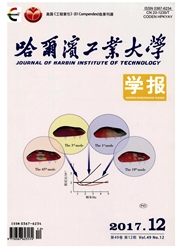

 中文摘要:
中文摘要:
为了反映不确定的公交出行需求对线路发车频率的影响,融入公交网络鲁棒性能指标优化线路发车频率.采用双层规划模型进行优化,首先分析需求的不确定性在公交网络上的传递过程,使用解析法给出上层模型的构造形式,其目标涉及两项内容,一项含乘客和公交运营部门费用的公交网络系统效益,另一项考虑公交网络鲁棒性能;其次,基于公交出行策略理论,采用公交网络客流分配模型作为下层模型;最后设计遗传算法求解.小型网络测试和六盘水市公交网络的应用结果表明,鲁棒性能指标可以提高线路发车频率的可靠性.
 英文摘要:
英文摘要:
To reflect the influence of uncertain demand to bus frequencies,transit network robustness performance was adopted to optimize the bus frequecies.A bi-level programming model was presented in the process.After the analysis of demand variation propagation in the passenger assignment process,the upper-level model was put forward by the analytical method.There were two items in this model,the former was transit network system benefit consisted of passengers' costs and operating costs,and the latter was transit network robustness performance.The objective of lower-level was to assign transit trips to bus route network based on optimal strategy.The adopted genetic algorithm to the model was illustrated with a test network and a city network of Liupanshui.It indicated that the transit network robustness performance could improve the reliability of bus frequencies.
 同期刊论文项目
同期刊论文项目
 同项目期刊论文
同项目期刊论文
 Modeling Unsafe Bicycle-Riding Behavior in China by the Theory of Planned Behavior and Structural Eq
Modeling Unsafe Bicycle-Riding Behavior in China by the Theory of Planned Behavior and Structural Eq Optimizing bus frequencies under uncertain demand: Case study of the transit network in a developing
Optimizing bus frequencies under uncertain demand: Case study of the transit network in a developing 期刊信息
期刊信息
